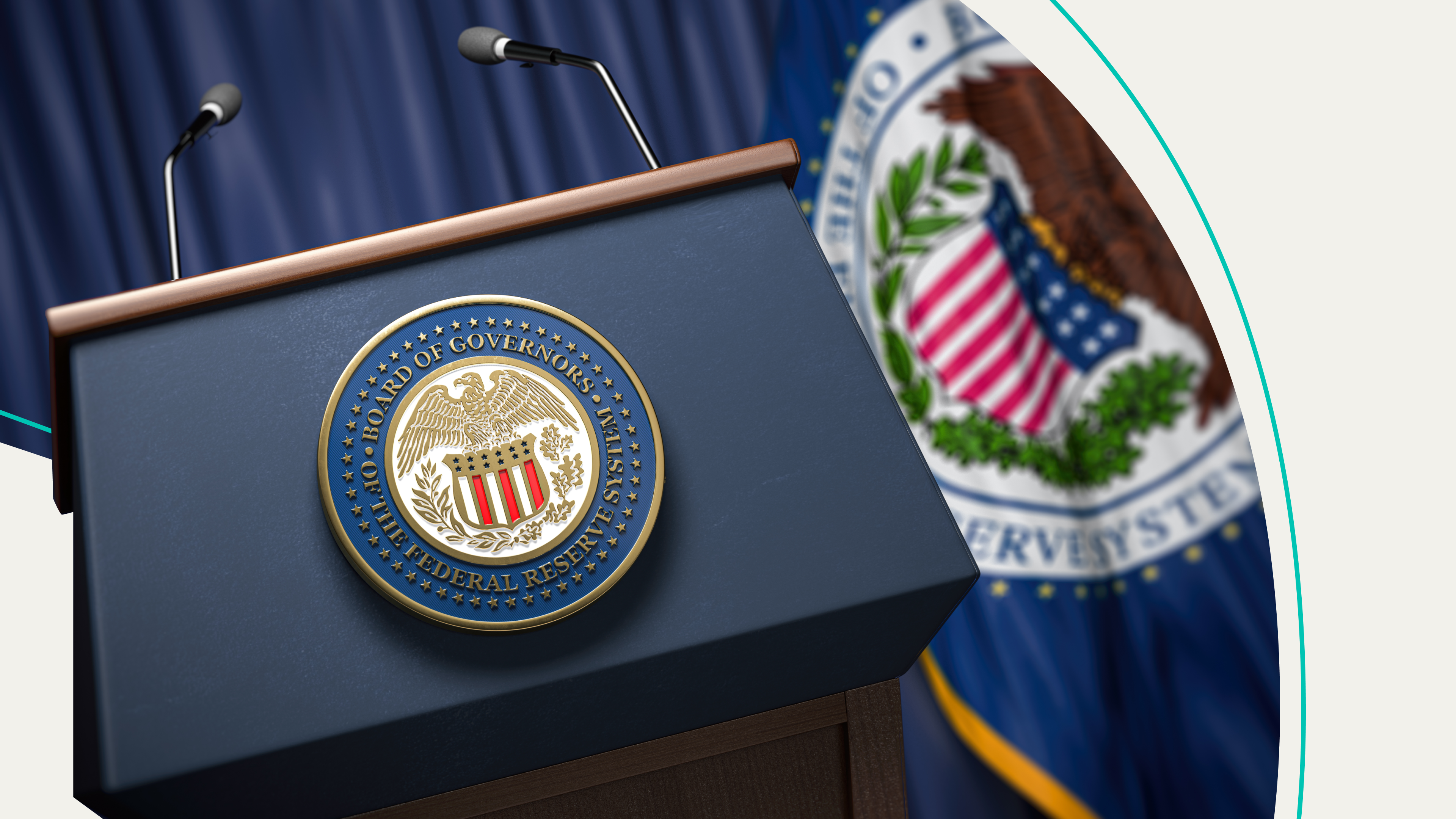The Fed raised its benchmark rate to 5.25% - 5.5% during its most recent meeting. The 0.25-percentage-point rate increase follows a series of hikes aimed at reducing inflation. ICYMI, the Fed has been in the spotlight recently because of high costs. Although inflation has cooled recently, the Fed is continuing its fight against rising prices.
Remind me. What do rate changes mean?
The federal funds rate is the interest rate banks pay to borrow money from each other overnight. Low rates = easy access to borrowing (think mortgages, personal loans, credit cards). Higher rates = the opposite.
Got it. So why is The Fed raising rates now?
Because in good news, the economy is doing relatively better than it was at the beginning of the pandemic. But in bad news, inflation has spun a little out of control. Or at least above the Fed’s preferred target of 2%.
And these higher rates will curb inflation?
That’s the hope. Because when it’s more expensive to borrow money, people tend to borrow (read: spend) less. And less demand = more supply which means lower prices.
Okay, so what does this all mean for me?
If you’re looking to borrow money in the near future, higher rates could make that debt a little more burdensome. Here's how the interest-rate increase could affect...
Home Loans
The impact: When the Fed raises interest rates, mortgage lenders typically raise theirs too. The good news is it might help ease the demand crowding the housing market. But it’s bad news for homebuyers who are already stressing about their budget.
Your move: Shop around. Even as rates go up across the board, one lender might offer you a better deal than another.
Auto Loans
The impact: Just like mortgages, rates on auto loans are ticking up along with the Fed’s rates. Supply chain issues could also continue to push up prices on cars, which might mean needing a bigger loan.
Your move: Get a preapproval.That means before you pick out your new wheels, apply for a loan (your bank or credit union is a great place to start), and take your best offer to the dealership with an idea of what you can afford and the interest rates available to you.
Credit Cards
The impact: Most credit cards come with a variable interest rate. Meaning your issuer can (and typically will) change your rate based on economic conditions, especially the federal funds rate. So if you’re paying off a card with a variable rate, that debt could get more expensive soon.
Your move: Bring that debt balance down ASAP. Credit card interest rates are notoriously higher than other debts like mortgages and auto loans. So the longer you carry a balance, the more you wind up paying. Though you might be able to score a lower rate by calling your card issuer.
Student Loans
The impact: Many people who currently have student loan debt won’t be impacted because federal loans take up the bulk of the country’s total student debt balance. Hint: Federal student loans have a fixed rate which Congress decides every summer. But, ICYMI, Congress did recently raise interest rates from 4.99% to 5.5% for loans disbursed on or after July 1, 2023 (reminder: it considers other factors along with the Fed’s rates). However, borrowers with private student loans may have a variable interest rate, meaning it could go higher along with the rate hikes.
Your move: Skip the refi. If you were thinking about refinancing your federal student loans, you might want to consider that carefully. Mainly because, outside of interest rates, federal loans come with strong borrower protections that private lenders rarely offer. You might find a lower interest rate than the gov offered you, but it might not be worth it in case you fall on hard times.
Savings Accounts and CDs
The impact: Finally some good news. When the fed raises rates, banks often raise the rates on savings accounts, CDs, and money market accounts to encourage customers to keep their money at the bank.
Your move: Go high-yield. If you don’t have a savings account or aren’t sure you’re getting the best rate available on yours, check out other banks. Savvy savers love online banks because they typically offer higher rates than old-school institutions.
So…how high will rates go?
TBD. Despite easing inflation, the Fed signaled that it may raise rates again this year. But the Fed is still hoping for a soft landing, aka a moderate economic slowdown vs. a full-blown recession.
theSkimm
How high rates will go is anyone’s guess. The Fed has hinted that it’s open to raising rates again if necessary. The rate increases may help keep prices tethered but could mean paying a little more each month on things like your mortgage or your credit card debt.
Updated July 26 to include the Fed's latest rate increase.
Subscribe to Skimm Money
Your source for the biggest financial headlines and trends, and how they affect your wallet.
